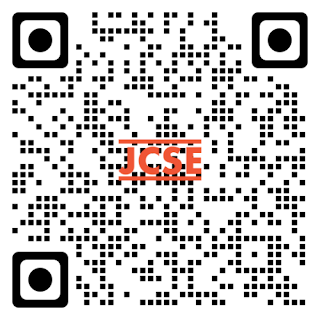Managing Student Mobility in Cameroon’s University Ecosystem: A FORM/BCS Approach
(1) University of Yaounde I
(2) University of Yaounde I
(3) University of Yaounde I
Abstract
Keywords
Full Text:
PDFReferences
D. Cairns, T. França, "Managing Student Mobility during the COVID-19 Pandemic: An Immobility Turn in Internationalized Learning?" Societies 2022, 12, 105. doi: 10.3390/soc12040105.
Y. Yue, "The determinants of international students inward mobility to China," Journal of National Academy of Education Administration, 20(08), 71-77, 2013.
W. Ha, D. Y. Chen, "Talent mobility and education dividend - A research review on the education of international students in China," Education Research Monthly, 36(03), 55-64, 2019.
Q. Yang, J. Shen, "The Impact of COVID-19 Outbreak on International Student Mobility: Analysis, Response Strategies and Experience from China," Journal of Comparative & International Higher Education, Volume 14, Issue 1, pp. 132-149, 2022.
F. Cornet, "Student Mobility in European Higher Education," J. Higher Education and Lifelong Learning, vol. 22, 2015.
M. S. Barrioluengo, S. Flisi, "Student mobility in tertiary education: institutional factors and regional attractiveness," Publications Office of the European Union, Luxembourg, 2017, EUR 28867 EN. ISBN 978-92-79-76295-6. doi:10.2760/675338. JRC108895.
James A. Hess William E. Novak Kyo C. Kang, Sholom G. Cohen and A. Spencer Peterson. 1990. Feature-oriented domain analysis (FODA) feasibility study. Technical Report CMU/SEI-90-TR-21. Carnegie-Mellon University, Pennsylvania , USA.
K. C. Kang, S. Kim, E. Shin, and M. Huh, "FORM: A Feature-Oriented Reuse Method with Domain-Specific Reference Architectures," Annals of Software Engineering, Vol. 5, pp. 143-168, 1998.
M. Fouda, Amougou Ngoumou, "The Feature Oriented Reuse Method with Business Component Semantics", International Journal of Computer Science and Applications, Vol. 6, No. 4, 2009, pp 63-83.
N. Amougou, M. Fouda,, "A Rewriting System Based Operational Semantics for the Feature Oriented Reuse Method ", International Journal of Software Engineering and Its Applications, Vol.7, No.6, pp.41-60, 2013.
N. Amougou, M. Fouda, "A Command Oriented Derivation Approach with Product-Specific Architecture Optimization", International Journal of Software Engineering and Its Applications, Vol. 9, No. 2, pp. 23-40, 2015. doi:10.14257/ijseia.2015.9.2.03
N. Amougou, M. Fouda, , "Feature-Relationship Models: A Paradigm for Cross-hierarchy Business Constraints in SPL", International Journal of Computer Science and Information Security, Vol. 16, No. 9, pp. 112-124, 2018.
N. Amougou, M. Fouda, , " Dynamic software product lines development platform’s architectures: A feature business components driven approach ", International Journal of Computer Science and Information Security, Vol. 17, No. 11, pp. 81-93, 2019.
N. Amougou, M. Fouda, , "Context metamodel in pervasive systems for dynamic software product lines", Journal of Software Engineering & Intelligent Systems, Volume 5, Issue 3, pp. 124-137, December 2020.
N. Amougou, M. Fouda, , "Extended dynamic software product lines architectures for context integration and management", Journal of Software Engineering & Intelligent Systems, Volume 6, Issue 1, pp. 28-41, April 2021.
L. Dolga, H. Filipescu, M. M. Popescu-Mitroi, C. A. Mazilescu, "Erasmus Mobility Impact On Professional Training And Personal Development Of Students Beneficiaries," 6th World Conference on Educational Sciences, Elsevier, 2015.
F. Mizikaci, Z. U. Arslan, "A European Perspective in Academic Mobility: A Case of Erasmus Program," Journal of International Students, Volume 9, Issue 2, pp. 705-726, 2019, doi 10.32674/jis.v9i2.1138
Campus France, "Mobilité et coopération universitiare en Afrique subsaharienne," Dynamique Régionale, No.1, December 2019.
Campus France, "Les grande tendances de la mobilité étudiante en Afrique subsaharienne," Dynamique Régionale, No.4, November 2022.
S. H. Bakri, H. Harun, A. Alzoubi, R. Ibrahim, "The Formal Specification for the Inventory System Using Z Language," Proceedings of the 4th International Conference on Computing and Informatics, ICOCI 2013, 28-30 August, No 064, pp. 419-425, 2013 Sarawak, Malaysia.
A. F. Al Azzawi, M. Bettaz, H. M. Al-Refai, "Generating Python Code from Object-Z Specifications," International Journal of Software Engineering & Applications (IJSEA), Vol.8, No.4, July 2017.
OMG, "Unified Modeling Language (UML)", version 2.5.1, Nformal/2017-12-05, Décembre 2017.
I. N. Reczkowski, "International Student Mobility, Student Exchange Programs, and Migration: Evidence from Gravity Estimations," Dissertation to obtain the doctoral degree of Economic Sciences, Faculty of Business, Economics and Social Sciences, University of Hohenheim, 2022.
Refbacks
- There are currently no refbacks.
Indexs by:

 Journal of Computer Science and Engineering (JCSE)
Journal of Computer Science and Engineering (JCSE)Published by : ICSE (Institute of Computer Sciences and Engineering)
Website : http://icsejournal.com/index.php/JCSE/
Email: jcse@icsejournal.com
 is licensed under a Creative Commons Attribution-ShareAlike 4.0 International License.
is licensed under a Creative Commons Attribution-ShareAlike 4.0 International License.







